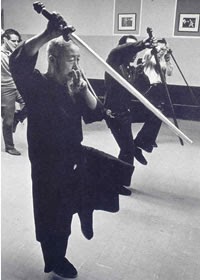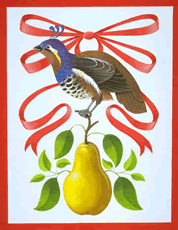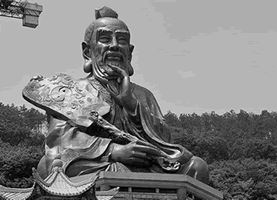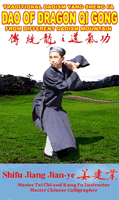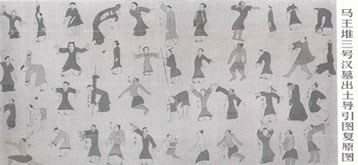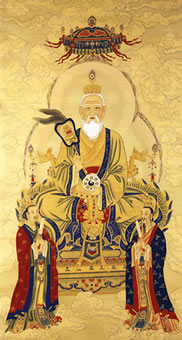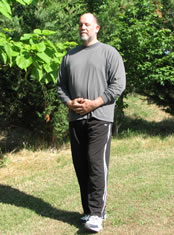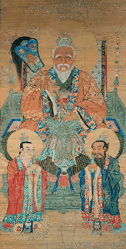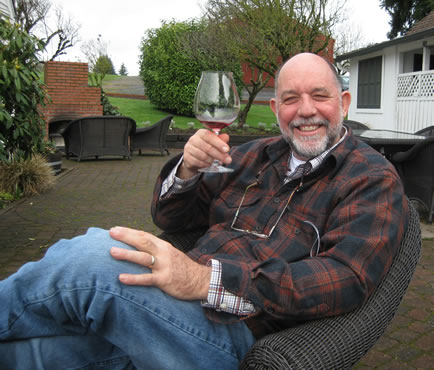The Sword of Wisdom
"Ever since the adepts handed on
The secret of the sword,
The true imperative has been upheld
Completely, truly adamant.
If someone asks me about
Looking for its origin,
I say it is not ordinary iron.
This lump of iron
Comes from receptive stillness;
When you obtain it, it rises up.
Forging it in a glowing fire,
Through repeated efforts
It is refined
And forged into steel.
When students of the Tao
Know this secret,
The spirit of light is intensely powerful,
And devils of darkness vanish.
The subtle function of spiritual work
Is truly hard to measure;
I now give an explanation for you.
In telling you about it
I divulge the celestial mechanism.
Setting to work when one yang comes back,
First have the six yangs pump the furnace bellows;
Then the six yins work the tongs and hammer.
When the work of firing is complete,
It produces the sword;
When it is first done,
It flashes like lightning.
Brandish it horizontally
And a cold clear breeze arises;
Hold it upright,
And the shining bright moon appears.
Auspicious light illumines heaven and earth;
Sprites and ghosts are distressed.
It stops turbidity, brings out clarity,
Sweeps away weird defilements;
It slays volatility,
Cuts down aggressiveness,
Destroys monsters:
Influences draining away
Vitality, energy and spirit
All vanish in the light of the sword.
Entanglements are cut off, rumination dies down,
And the web of feelings is rent asunder.
Where the spiritual edge is aimed, mountains crumble;
The demon kinds of mundane planes are all routed.
This precious sword fundamentally has no form;
The name is set up because it has spiritual effect.
Learning the Tao and practicing reality
Depend on this sword:
Without this sword,
The Tao cannot be achieved.
Opening up the vast darkness,
Distinguishing heaven and earth,
Dissolving obstructions, transmuting objects -
All is included.
If you ask me to show it to you,
I bring it out before you -
Do you understand or not?"
- The Sword of Wisdom
From "The Book of Balance and Harmony"
Translated by Thomas Cleary, 1989, p. 115-117
Taijiquan Sword: Bibliography, Links, Resources, Instruction, Guides, All Styles
T'ai Chi Ch'uan Sword: Poems, Sayings, Quotations, Wisdom
"Ever since the adepts handed on
The secret of the sword,
The true imperative has been upheld
Completely, truly adamant.
If someone asks me about
Looking for its origin,
I say it is not ordinary iron.
This lump of iron
Comes from receptive stillness;
When you obtain it, it rises up.
Forging it in a glowing fire,
Through repeated efforts
It is refined
And forged into steel.
When students of the Tao
Know this secret,
The spirit of light is intensely powerful,
And devils of darkness vanish.
The subtle function of spiritual work
Is truly hard to measure;
I now give an explanation for you.
In telling you about it
I divulge the celestial mechanism.
Setting to work when one yang comes back,
First have the six yangs pump the furnace bellows;
Then the six yins work the tongs and hammer.
When the work of firing is complete,
It produces the sword;
When it is first done,
It flashes like lightning.
Brandish it horizontally
And a cold clear breeze arises;
Hold it upright,
And the shining bright moon appears.
Auspicious light illumines heaven and earth;
Sprites and ghosts are distressed.
It stops turbidity, brings out clarity,
Sweeps away weird defilements;
It slays volatility,
Cuts down aggressiveness,
Destroys monsters:
Influences draining away
Vitality, energy and spirit
All vanish in the light of the sword.
Entanglements are cut off, rumination dies down,
And the web of feelings is rent asunder.
Where the spiritual edge is aimed, mountains crumble;
The demon kinds of mundane planes are all routed.
This precious sword fundamentally has no form;
The name is set up because it has spiritual effect.
Learning the Tao and practicing reality
Depend on this sword:
Without this sword,
The Tao cannot be achieved.
Opening up the vast darkness,
Distinguishing heaven and earth,
Dissolving obstructions, transmuting objects -
All is included.
If you ask me to show it to you,
I bring it out before you -
Do you understand or not?"
- The Sword of Wisdom
From "The Book of Balance and Harmony"
Translated by Thomas Cleary, 1989, p. 115-117
Taijiquan Sword: Bibliography, Links, Resources, Instruction, Guides, All Styles
T'ai Chi Ch'uan Sword: Poems, Sayings, Quotations, Wisdom
